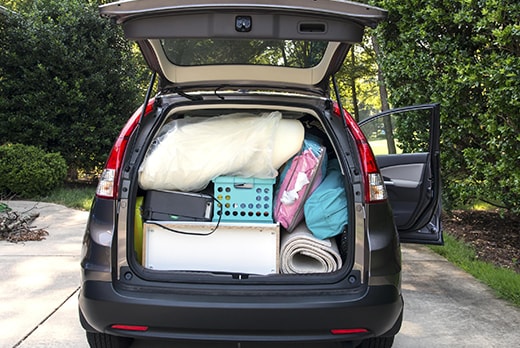Updated: May 24, 2023
Article highlights
- By practicing a few simple money management skills, you can lay the groundwork for your future financial success.
- Keep records of what you spend and earn. Doing this will make you more financially accountable and make it easier to save money.
- Learning how to shop the right deals can result in big savings. Do some comparison shopping to keep your monthly expenses down.
It’s never too early to bone up on your money management skills. Whether you’re a high school student or in college, now is a great time to develop your FQ—or financial intelligence. Bolster your financial skills with a few of these handy tips. Not only will they help you save money, but will also lay a solid foundation for financial success down the road.
1. Prioritize your expenses
The first step to successful money management is understanding priorities. Practice determining the difference between needs and wants. Before spending money on what you wish you had, you need to make sure your necessities are covered. By exercising self-discipline and controlling any unnecessary spending, you will establish healthy financial habits for the future.
2. Track your income and expenses
Have a part-time job? Every time you receive a paycheck or make a purchase, record that information. You can use a spreadsheet, a paper ledger, or personal finance software. Budgeting apps are easy to use and you can sync your information with your smartphone. Knowing how you are spending your money is vital if you want to stay on top of your budget and avoid getting into debt.
3. Start saving
College is a good time to start the habit of saving money aside for the future. No matter how much you earn right now, putting 10-20% of your paycheck into a savings account will help you afford any unexpected expenses you might incur (like when your car breaks down), as well as fun things, like weekend trips with your college roommates.
4. Read your bank statements
Every month, your bank will send you a statement of your spending activity. Learn how to read these statements so that you can see how much money you've put in and how much you've spent. Pay attention to any fees you are charged, including overdraft fees. Overdraft fees indicate that you spend more than you earn and offer a warning to slow down your spending.
Compare your bank statement with your own records. This is easy to do if you use personal finance software. Most apps come with a "reconcile" feature that allows you to quickly and easily look at your own records to see if they match your bank statement. Correct mistakes in your own records and report suspicious transactions to your bank. Being able to read and reconcile your financial information is one of the first lines of defense against identity theft.
5. Try comparison shopping
Soon you'll be making your own decisions about what to buy, from groceries to clothes to household supplies. Prices vary on items, depending on brand, retailer, and other factors. Learn how to find the best value on products and services so that you get the most bang for your buck. Barcode scanning apps for your smartphone allow you to make quick comparisons between what you find in one store and what is available at other locations or online. Read online reviews of different products so that you can base your decision on quality as well as cost.
6. Plan your purchases
Practicing patience is one of the most important financial skills you can develop. Rather than buying what you want immediately, plan your purchases based on your priorities and then budget for them. Not only will this ensure that you have the amount you need at the time of purchase, but it could also give you time to think about whether you really want to make it or not. Instituting a waiting period can help you properly evaluate your needs versus wants, and you will make better spending decisions.
7. Build your credit
College is when lots of students apply for their first credit card. This can be a good thing, or a bad thing, depending on how you use your card. At the best of times, a credit card is an excellent way to build good credit, which will be vital when you one day want to buy a car or rent an apartment. What you don’t want to do is rack up lots of credit card debt you can’t afford to pay off. As a rule of thumb, only buy on credit what you can afford, and pay off your balance in full every month. Setting up an automatic payment can also ensure you never forget to pay your bill.
8. School yourself
Give your financial skills a further boost by signing up for financial literacy courses. Some colleges even provide students with workshops and courses covering basic financial skills, including everything from how to balance a budget, to applying for a first credit card.










